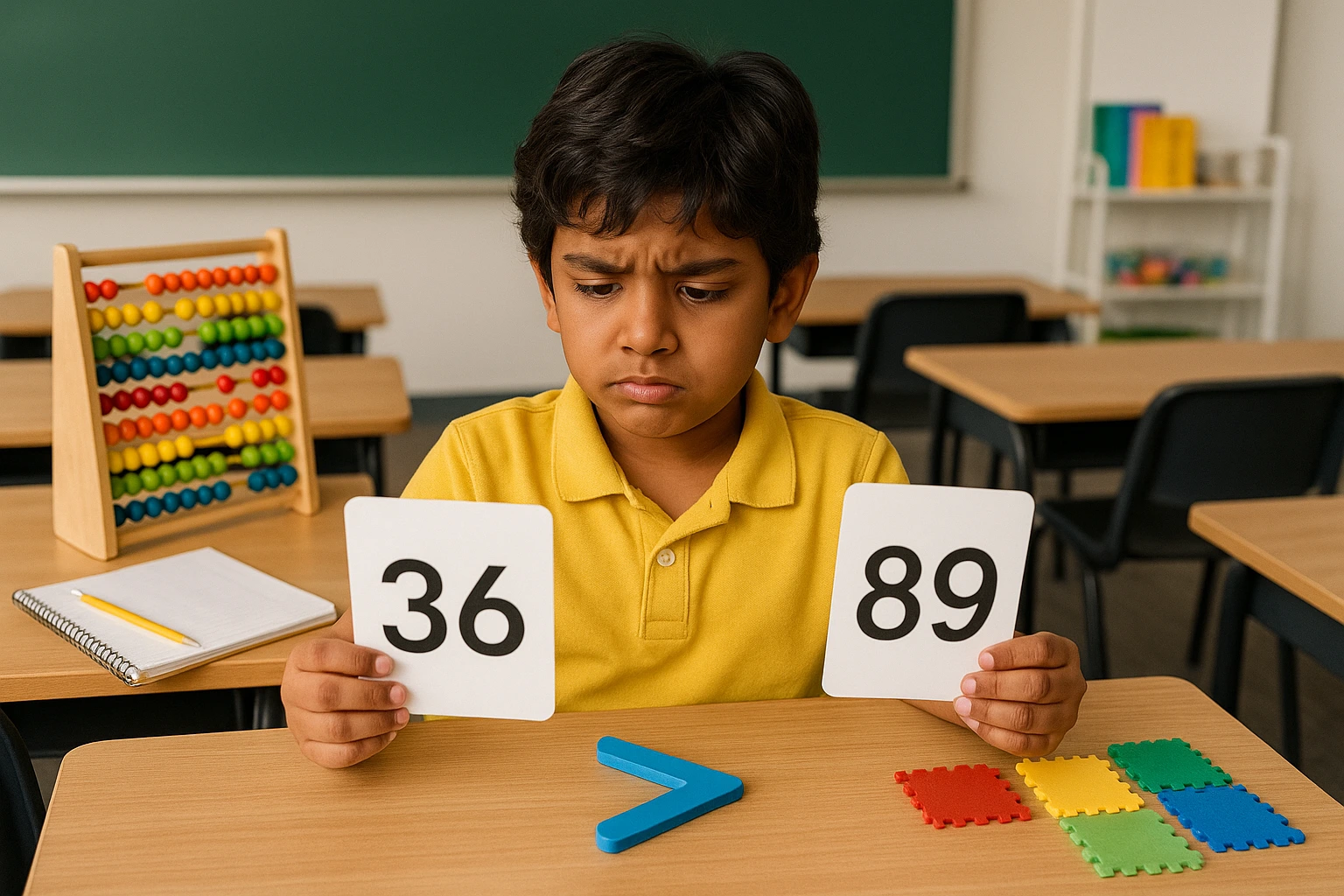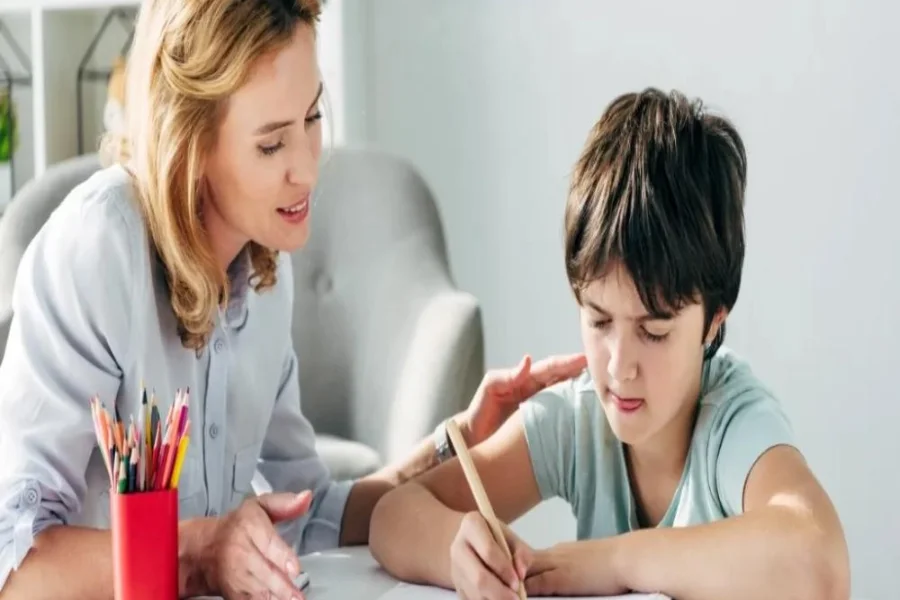What is Learning Difficulty Definition?
Source: schoolofhealthcare
What is Learning Difficulty Definition?
Learning Difficulty is a disorder where the basic and crucial learning skills of the child, such as reading, writing, and maths-solving are affected due to neural processing issues in the brain-related areas that oversee the above skills. A learning difficulty condition arises as the way the child processes information is different compared to the average learner leading to academic gaps hampering their academic progress and overall development.
Understanding a Specific Learning Difficulty is extremely beneficial for the parents and educators as it helps them carve out a suitable plan comprising effective strategies, helping them get an equal chance to lead lives with dignity and independence.
Table of Content
For more details of the Learning Difficulties Course, Call / WhatsApp on +919321024137 / +919869866277.
Click here to download the brochure of the Learning Difficulties Course!
What are General Learning Difficulties?
General learning disabilities (GLD) are a group of learning disorders that affect the capabilities of individuals to think, respond, and arrive at an appropriate response. These difficulties do not imply that the child does not possess intelligence; people with GLD’s are talented individuals, but due to information processing issues, they affect academic well-being as well as their cognitive development.
Key points about General Learning Difficulties
Struggle with processing
Individuals with GLD cannot easily understand new topics, as their information processing capabilities are impacted due to which makes retaining the information and using it for further reasons a huge struggle.
Impact on various domains
Although the influence on everyday learning is huge, there is an evident struggle that can be seen in the developmental domains of social interactions, communication, and daily conduct as well.
Severity varies
GLD can range from mild to profound. Some individuals may require limited support, while others need consistent, intensive assistance.
Lifelong nature
GLD is not a condition that fades away with time; it is a lifelong situation, but with an appropriate intervention approach, the child can make measurable improvement and polish their essential skills.
Different from Specific Learning Difficulties
GLD affects overall learning abilities, whereas SpLDs like dyslexia target specific areas with relative strengths in others.
Cognitive Issues
People with GLD may suffer from poor attention span and weak memory, due to which planning tasks and reasoning can be an issue.
Socio-Emotional Impacts
GLD influences the behavioural skills of the child, which include how they interact with their peers and classmates. Due to meagre communication skills, individuals with GLD prefer being secluded, maintaining very little communication and bonds with others.
General Learning Difficulties can be addressed effectively when appropriate strategies and targeted support are offered.
For more details of the Learning Difficulties Course, Call / WhatsApp on +919321024137 / +919869866277.
Click here to download the brochure of the Learning Difficulties Course!

Source: aninews
How to Motivate a Child with Learning Difficulties?
Children with GLD can be extremely disheartened due to their lagging in class due to which they lead to frustration and anxiety issues. Motivating a child with learning difficulties requires a calm mind, a positive mindset, and thorough knowledge of important aspects that affect them. Understanding the strengths and key points of children will help to devise the correct approach to uplift their morale, instilling in them the confidence to strive harder to attain their potential.
Here are effective ways to build motivation
Set achievable goals
Try and simplify the learning process. Explain the topics by breaking them into easy, manageable steps that help them become thorough with basic topics, which helps them in understanding complex concepts.
Reward and Appreciate
Celebrate the smallest achievement of the child, especially when they are making an effort. Ensure that small losses do not overwhelm the child or dishearten him.
Design a conducive learning space
Create a supportive environment that supports the child’s learning, especially keeping it free of distractions and ensuring that it is organized with minimal noise levels.
Focus on strengths
Try and capitalize on the key strengths of the child that help them be engrossed in the learning process without feeling the burden of. Identify what the child enjoys or excels at and include those interests in learning activities to keep them engaged.
Allow choice and independence.
Letting the child choose between tasks or decide how they want to complete something helps build ownership and motivation.
Do not lose your cool
Maintain a calm mindset when you are handling children with GLD’s, as your smallest overreaction can harm their confidence. Be patient with them, gaining their trust, enabling them to be comfortable around you.
Take inputs from the child
Let the child be an active participant while setting goals that help them be motivated and well-aware of what is expected from them.
Be their biggest emotional support
Provide emotional support to the child by identifying their emotions and letting them know that these emotions can be handled.
Handling children with GLDs is not only about strategies and therapies but about providing the child a constant assurance that they, too, can lead independent, meaningful lives with dignity and function effectively.
For more details of the Learning Difficulties Course, Call / WhatsApp on +919321024137 / +919869866277.
Click here to download the brochure of the Learning Difficulties Course!

How Learning and Intellectual Difficulties Differ?
Learning Difficulties impact specific areas, including reading, writing, or math. Dyslexia and dyscalculia fall in this category. The individual usually has average or above-average intelligence but has difficulties in particular skills.
Intellectual disabilities (previously referred to as Intellectual Difficulties) involve a more global delay in cognitive development. Intellectual disabilities affect intellectual functioning as a whole by affecting reasoning, problem-solving, and learning the skills to perform everyday living.
Key differences:
- Scope: Learning difficulties impact specific academic areas; intellectual difficulties affect general cognitive abilities.
- IQ levels: Individuals with learning difficulties typically have average or above-average IQ levels. Those with intellectual difficulties usually have below-average IQ scores.
- Support needs: Learning difficulties may require targeted interventions, while intellectual difficulties often need wider and more consistent support across life areas.
Understanding the difference helps modify the right approach to learning and caring.
Therapy and Support for Learning Difficulties
Children with learning difficulties will always obtain the most benefit from early and continuous therapy, and help with academic support relevant to their needs. All therapy will have an element aimed at improving skills and enhancing self-confidence in daily living. The Vidhyanidhi Education Society (Govt. Regd.) has a comprehensive Learning Disability Course that provides educators with direction on how to recognize learning disabilities in children and support children with these and other specific disabilities.
Types of support include
Special Education Support
Tailored strategies that align with children’s learning styles, helping them enjoy the learning process with minimum stress enforced through an Individualized Education Plan (IEP).
Speech and Language Therapy
Helpful for children facing issues with communication, vocabulary, and understanding.
Occupational Therapy
This treatment is essential to promote the child’s motor skills, which improve their efficiency in performing their daily tasks.
Behavioral Therapy
Supports emotional regulation and builds positive coping approaches for frustration and anxiety related to education.
Parent and Teacher Training
Programs such as the Learning Disability Course by Vidhyanidhi Education Society (Govt. Regd.) prepare adults to provide meaningful support.
Completing the Learning Disability Course helps professionals understand various intervention techniques, making a real difference in children’s academic journeys. With the right guidance and consistent care, children with learning difficulties can experience steady progress and greater self-esteem.
Unlock your child’s potential with our Learning Difficulties Course at Vidhyanidhi Education Society!
For more details of the Learning Difficulties Course, Call / WhatsApp on +919321024137 / +919869866277.
Click here to download the brochure of the Learning Difficulties Course!
FAQs
What is the Term for Difficulty?
“Disability” or “impairment” is often used as a term for difficulty, especially when referring to cognitive, physical, or learning-related challenges.
What are the Difficulties of Learning for Students?
Students may face trouble with memory, focus, reading, writing, or math. Vidhyanidhi Education Society offers a Learning Disability Course to address these needs.





